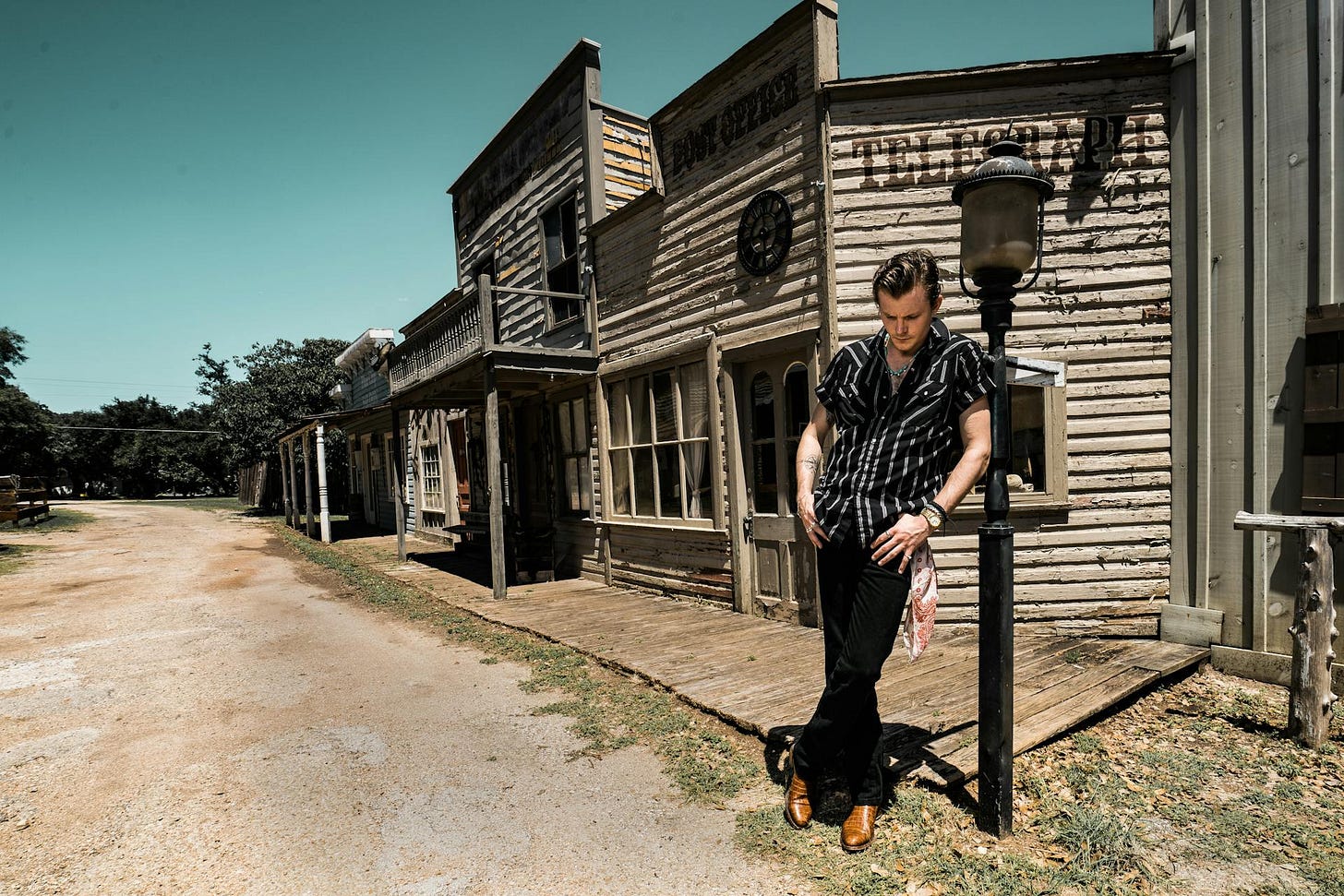In the months following the completion of my undergraduate degree, the question of finding my career path naturally grew strong. Having completed a Bachelor's in a broadly non-specialized subject area (Business Economics) didn’t help my cause. And given the fact that I was not up to the task of completing a Master's (which certain academics argue is the way to specialize) I was left pondering the right course of action.
Around this time I started following again the public speaking engagements of the British/American polemicist Christopher Hitchens, which I did a few years earlier. If you have tried listening to this man speak, you would realize it can be addictive. Having read his infamous God is Not Great and followed with great interest the ensuing debates over religion, morality, and freedom among other things; Hitchens’s eloquence, knowledge of history and command of the English language drew me in.
I recall, the writer once stating that he wanted to be a writer. And that it wasn’t really a matter of choice: becoming a writer was a vocation that he simply must fulfil. In the time soon after the completion of my degree, I too committed to becoming a writer. Specifically, a published author: That is to be traditionally published by one of the four or five big publishing companies that control the industry in the Anglo-American world.
This was almost a decade ago. Whilst my interest in becoming a published writer has not waned. Even though I only started actively seeking publishers, preceding that, literary agents, sometime in 2019, the pursuit of this ‘dream’ if you like, has provided a few hard insights into the workings of the publishing world.
Whilst the goal of getting agented (to be represented by a literary agent) and then eventually landing a publishing deal with one of the major publishers remains concrete, at the same time I am constantly reminded of the challenges that await a person like me who is trying to get into the competitive world of traditional publishing. This post outlines some of my thoughts on this matter.
When Women Roar Diversity Grows
Sometimes I feel like my name is a curse. As a person with non-European heritage, with roots that are not based in the Western Hemisphere more broadly, having a, for the lack of a better word ‘English’ first name and a Latin Surname, I think hasn’t helped my publishing prospects too well. Being a, to use an expression I frankly despise “person of color”, my background could be a boon when it comes to advancing my prospects in the publishing world.
That is for an agent, but preceding that, the literary agency that he/she represents to take note of my work, but preceding that, in me as a person. A choice that increasingly appears to be shaped not as much by what the writer has produced, but by who he/she is as a person. Of course, my inability to secure a literary agent could be down to a number of things. Lack of agent query letters; subpar cover letters, or book proposals; or it could be down to my writing not being up to the mark, or not in line with what is ‘hot’ in the industry right now.
All of these are fair points and I take full responsibility for my current predicament as a non-agented non-traditionally published author. However, having studied a large number of literary businesses over the past few years, in terms of their publishing philosophy and the kind of writers they are looking for, and based on the responses (refusals) that I have received, I cannot help shake the feeling that a person with my author profile: male, heterosexual, and Western-in my outlook, and traditionally masculine in terms of style my writings are more likely to be overlooked.
To put this in perspective, my approach to writing is built on my intellectual heritage, which is Western, Christian and European. Meaning, it is based on the spiritual and intellectual foundations of Athens, Rome and Jerusalem. Further, since I am very much opposed to any form of race-based or sex-based identification, a point that is reflected in my writings, it naturally puts me on the opposite side of the cultural zeitgeist of our times. The push to elevate, represent and as the argument goes “fight for” the rights and liberties of historically marginalized groups: women, gays, “persons of color”, persons who are physically or mentally impaired, and others who claim some kind of oppression, or misfortune.
A related point, during the past year of job hunting, a number of job applications featured extended questionnaires that explicitly requested information on my status in terms of any current or historical disabilities. Questions that came with the not-so-subtle demand to determine if I chose to identify with such ailments or disabilities and presumably stand to benefit from some kind of preferential treatment.
Returning to the subject at hand, the industry that women dominate that I am speaking of is the publishing business. This took me some time to figure out, but based on my research and overall experience of querying literary agents, who incidentally act as the gatekeepers that enable aspiring writers to become published authors, I noticed an undeniable fact: this is an industry where women rule.
In 2021 The Guardian, a British center-left wing news outlet known for its unabashed feminism, published an article titled: ‘How women conquered the world of fiction’. The article begins by announcing how Vantage, an imprint of the major publishing group Penguin Random House, would be debuting five new novelists who all happen to be women. Going on to state, and I quote:
“But you could be forgiven for not noticing it, so commonplace are female-dominated lists in 2021. Over the past 12 months, almost all of the buzz in fiction has been around young women” (1).
The Observer’s (another major British publication) annual debut novelist showcased 44 writers, 33 of whom were female. Among the names of nominees for the Costa First Novel Award, an annual literary award that recognizes English-language books by writers based in the UK and Ireland, among the authors shortlisted over the past five years it featured a ratio of 75 per cent female to 25 per cent male. And the list of female-friendly ratios and numbers in the book business goes on.
Leaving aside any gender stereotypes, you know the usual women like books, men like sports; girls like fantasy, boys like science fiction; women like reading, men like playing; women like romance and non-fiction men prefer action and non-fiction. Though it is worth stating that romance books are the highest-grossing in the world of fiction, and as it happens women are far more likely to gobble up romance novels than their male counterparts, by a margin of 82 per cent (2).
On top of this, other factors that indirectly contribute to this reality. From the propensity for females to choose degrees in language, history, literature, and PR tends to push them towards the world of publishing, not to mention the growing presence of women in higher education, which indicates the relative decline of men in the same arena.
So at this point, a question that is worth posing is, what about men? Specifically the need for, I don’t know dedicated initiatives to bring more biological males into the mix. You know, to balance things out in the name of equality, justice or whatever the rhetoric that is used to get more women into ‘male-dominated’ industries and spaces. If men dominate certain industries like finance and Tech, shouldn’t there be comparable efforts to increase the representation of men in fields where they (we) lag behind?
No Country for Straight, White, Western Men
Ever since the resurgence of the modern feminist movement that started sometime in 2014, I couldn’t help shake the feeling that women as a gender are more prone to support or patronize causes that are social justice-oriented. Causes that (or purport to) fight for the upliftment of a certain (supposedly) marginalized group. The idea of ‘fighting for’ marginalized social group ‘X’ is a message that seems to resonate with something deep within the female psyche.
Particularly if the female in question is single (unmarried) and/or homosexually disposed. This is a topic that requires dedicated perusal, for now, I would like to draw attention to the dominance of women in the publishing industry, and if this dynamic has anything to do with the increasingly politicized nature of the landscape. Politicized in a way that excludes or marginalizes certain ‘already-empowered’ groups like Straight men, who value traditional masculinity.
Since the numbers do support the hypothesis that the publishing industry is female-friendly, the next question is: what about the tilt towards ‘diversity’ and other social justice-oriented messaging and mantras that have become central to the literary world? Again, drawing from my experience in seeking out agents and publishers, where the emphasis placed on gender identity, race, and elevating persons from “diverse backgrounds” was a mainstay, it seems the preponderance of women is a logical contributory factor.
At certain points of my querying journey, the idea of painting my writing and myself as a person, from such a ‘disadvantaged’ or ‘marginalized background was a temptation. As it happens, my writings clearly contradict and in some ways oppose such notions. This arguably is one of the reasons for my inability to make headway in the publishing world: my opposition to the dominant sociopolitical narratives of our time.
Among the most recognized artists in the young adult art and literature genre in the English-speaking world today is Rupi Kaur. The Canadian New York Times bestselling author who amassed a vast followership through her popularity on social media, whose works are very much on the edge in terms of content and ethos. Her first book Milk and Honey (2014), whilst clearly heavy on ‘the message’ was an admirable take on the complex realities of young love, heartache and healing.
However, her second book: The Sun and Her Flowers (2017), walks headlong into the confrontational miasma of the diversity - inclusivity world. As the Canadian author embraces the ethno-cultural character of her heritage. One that centers on her Sikhi religion and Indian ethnicity. My work in the same genre, if the reader happens to be interested, that was forged as a response to Ms. Kaur’s first book, principally opposes this worldview.
In fact, if I am to claim a heritage as my own and worthy of praise and artistic celebration it would be one that is culturally Western, spiritually Christian and characteristically European. To which one can add an aesthetically heteronormative ethos. The problem at hand is that at least in the publishing world, people, men specifically, who espouse such a worldview, a natural one that stems from our biology, are likely to be shunned by a female-dominated industry that is hell-bent on the advancement of… women.
References
Thomas-Corr, J. (2021). How women conquered the world of fiction. [online] The Guardian. Available at: https://www.theguardian.com/books/2021/may/16/how-women-conquered-the-world-of-fiction [Accessed 23 Aug. 2024].
Literatureandlatte.com. (2024). Why Are Romance Novels So Popular? | Literature and Latte. [online] Available at: https://www.literatureandlatte.com/blog/why-are-romance-novels-so-popular#:~:text=Romance%20novels%20are%20the%20%E2%80%9Chighest [Accessed 23 Aug. 2024].






